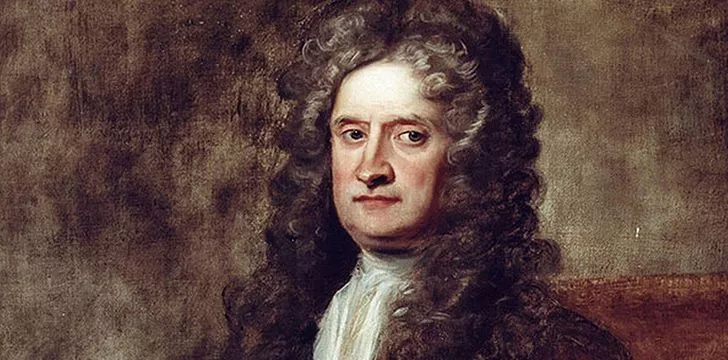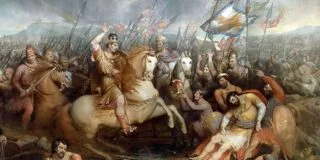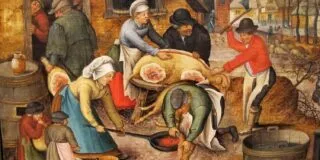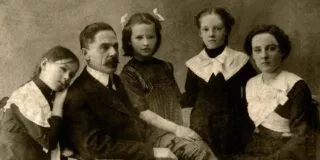It is almost impossible to visualize the scientific world without the name of Isaac Newton.
He was the first scientist who legitimately tried to find an explanation as to why every object that holds some weight, plummets only towards the ground.
Isaac Newton is usually illustrated with an apple in the contemporary world.
This is because he supposedly got the “aha moment” when he was hit on the head with a big old apple.
Contrary to such claims, there is no rock-solid evidence for that story.
However, it is possible that he came to his first reasoning on a force of gravity by looking at a falling apple.
Here are 20 interesting facts about Isaac Newton!
When Isaac Newton was an infant, he could fit inside a quart-size mug.
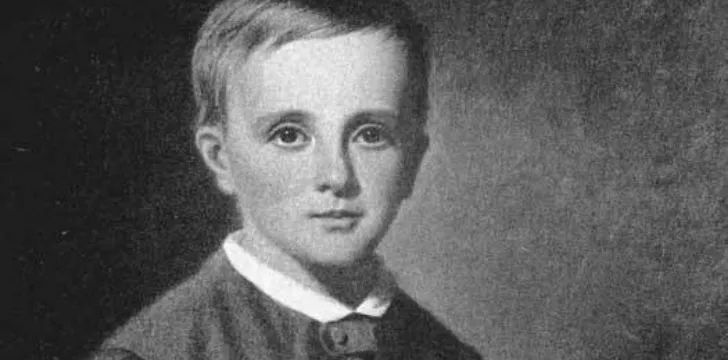
According to his mother’s words. He was so small because he was born prematurely on December 25, 1642.
Isaac Newton’s father was also called Isaac Newton.
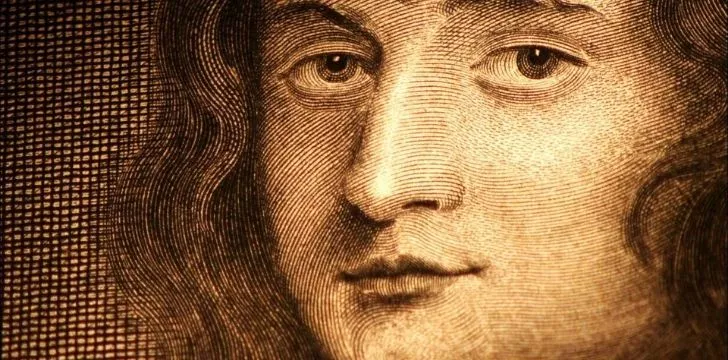
Young Isaac was called the same name in the honor of his father, who passed away just three months before his birth.
When he was just three years old, his mother Hannah Ayscough left him.
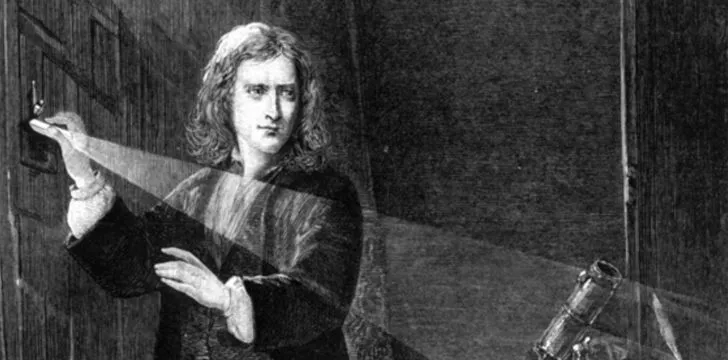
She left him in the care of his maternal grandmother in order to live with her new husband.
Isaac Newton threatened to burn down a house while his mother and stepfather were still inside.

Isaac grew up having animosity towards his stepfather, Reverend Barnabas Smith, with whom his mother had three children.
Young Newton wasn’t on good terms with his mother either.
He recorded all of his confessions in his personal journal.
Isaac Newton’s mother wanted him to be a farmer.
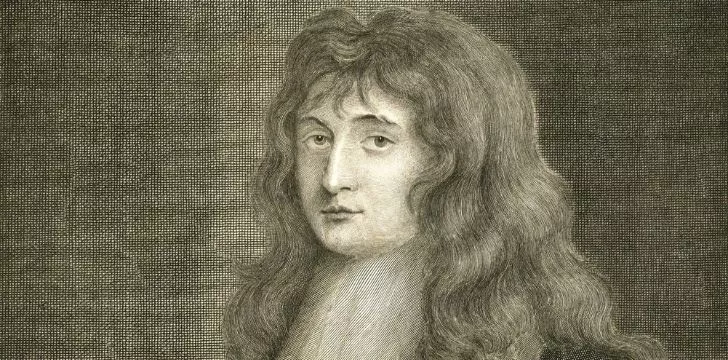
However, Newton literally hated that profession. Overall, his rural lifestyle ended up unsuccessful.
His mother knew that he was not made for rural work, so she allowed him to get his formal education.
Isaac Newton was bullied at school because of his shy and quiet nature.
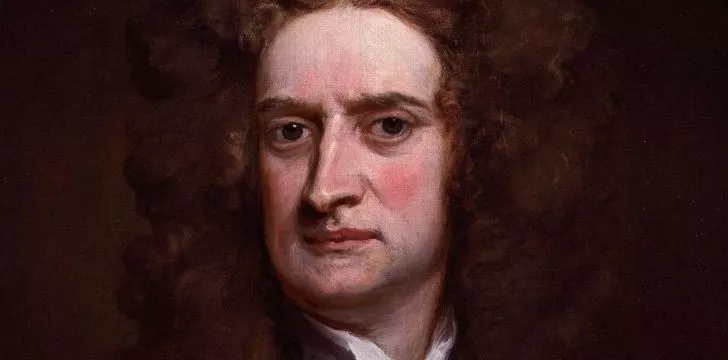
According to the stories, he tried to prove himself better than others by concentrating his whole attention on school work.
Eventually, he achieved that dream.
Between the ages of 12 and 17, Isaac Newton got an education at the King’s School, Grantham.
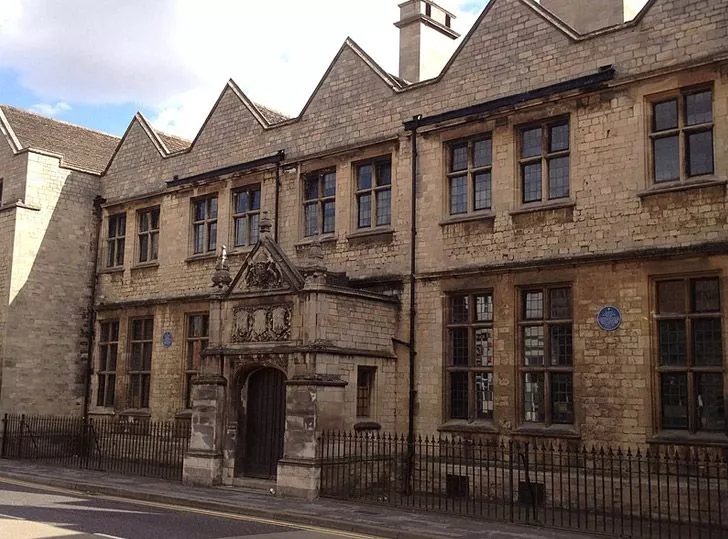
During this time he resided with William Clarke, who led Isaac Newton to an interest in chemistry.
The King’s School is still operational today, and one can see Newton’s engraved signature on one of the windowsills of the school.
His uncle, Rev William Ayscough helped him to get into Trinity College.

This was in Cambridge in June 1661. Since he did not possess significant wealth, he worked several part-time jobs in order to pay for his education.
He mostly worked as a valet.
In 1664, Isaac Newton won a four-year scholarship to Cambridge.

That gave him a chance to turn his part-time jobs into quality leisure where he could contemplate new ideas.
The bubonic plague of 1665 interrupted his education.

The Cambridge University was closed for two years, during which Isaac Newton returned to Woolsthorpe manor to work on his scientific pursuit.
Actually, it was an extremely productive period for him.
It was during this time that he saw a falling apple in the Woolsthorpe manor gardens.
He became a mathematics professor at Cambridge University at the age of 27.

This was only a year after getting his master’s degree.
Impressed with Isaac Newton’s mathematical works, professor Isaac Burrow gave his post to Isaac Newton.
Isaac Newton invented calculus, but he wasn’t a smart investor.

He lost over £20,000 investing in the South Sea Company.
That amount will be over $3 million dollars in today’s estimate.
Since that unpleasant event, he forbade anyone from mentioning the name “South Sea” while he was present.
He wrote more about religion and alchemy than he did about science.
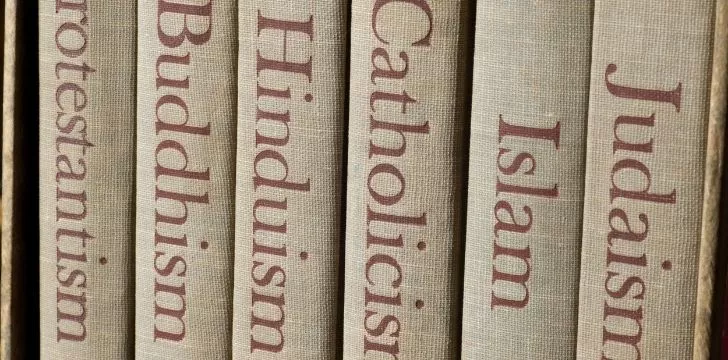
However, that side of him remained hidden.
Only in the 1960s, his 10 million-word papers were published publicly.
Interestingly, during his lifetime Newton did not share his religious views quite often, he just wrote about them.
Newton’s descendants also kept those papers secret, fearing that those papers would ruin his reputation and lead him to be accepted as a heretic.
Why do apples fall to the ground?

Why doesn’t the moon, sun, and all the stars fall to the ground also?
Those were the questions Isaac Newton brainstormed in his head.
And, probably those were curiosities that paved his way towards his accomplishments in the theory of gravity.
One of Isaac Newton’s most well-known books was the Principia (e).
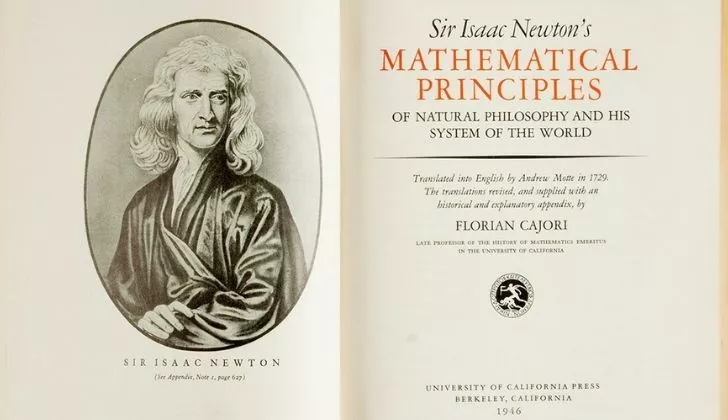
Newton’s Principia was a collection of three books, in which Isaac Newton wrote about the theory of gravity along with many other ideas.
In the book, he shares three important laws of motion as we know them as Newton’s three laws.
The first one states that: If there is no outside force, a stationary object will not move. And, without an outside force, a moving object will not stop.
The second law: the more force equals more acceleration.
The third law: “Every action has an equal and opposite reaction,” for instance, a balloon goes up and air goes down.
Isaac Newton was a member of the Parliament of England.

He did not contribute any accomplishments from that post.
Instead, some historians humorously mention that while he was in Parliament, Newton only complained about the room temperature, and asked to close the windows.
Isaac Newton never got married.

Some historians suggest that since Cambridge was the inheritance of Catholic University systems, the administration usually suggested that its students, fellows, and professors possess a celibate life.
As a respected member of the Cambridge University and someone who is always in the pursuit of science, Isaac Newton might not find a time for his personal life, or simply, he did not want any distractions.
Isaac Newton may have had Asperger Syndrome.

By extensively studying his journals and biography, scientists came to the conclusion that symptoms of Asperger’s were present in Newton.
Isaac Newton had a poor social life.
He hardly spoke and had anger problems. Sometimes, he even forgot to eat, being too highly occupied with his work.
Students poorly attended Newton’s lectures, but he held the lectures anyway.
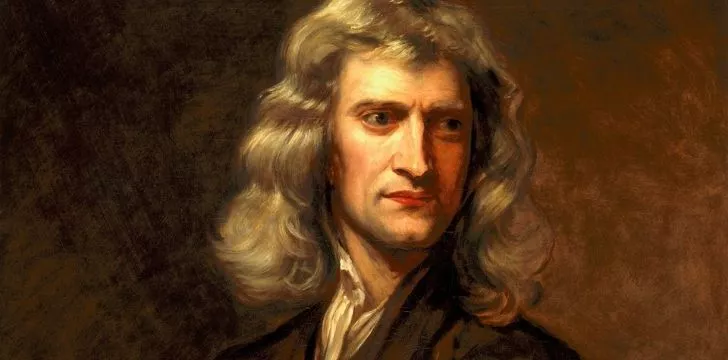
Sometimes, students did not show up at all, but he hardly canceled his lectures.
Isaac Newton spent 30 years of his life in Cambridge, but he showed little interest in his students and his teaching profession.
Some historians state that students hardly understood his lectures. His main concentration was on his own research.
Isaac Newton died at the age of 84 from severe stomach pain.

When he crossed the 80 years mark of his life, he started experiencing some digestion problems, which forced him to be on a strict diet.
On March 31, 1727, Newton passed away in his sleep.
Being one of the most famous persons in the history of science, Isaac Newton was responsible for the theory of universal gravitation, the nature of white light and calculus.
It’s crazy to think his family wanted him to become a farmer. Had that been the case we may well have not understand parts of the world in the way we do today.
